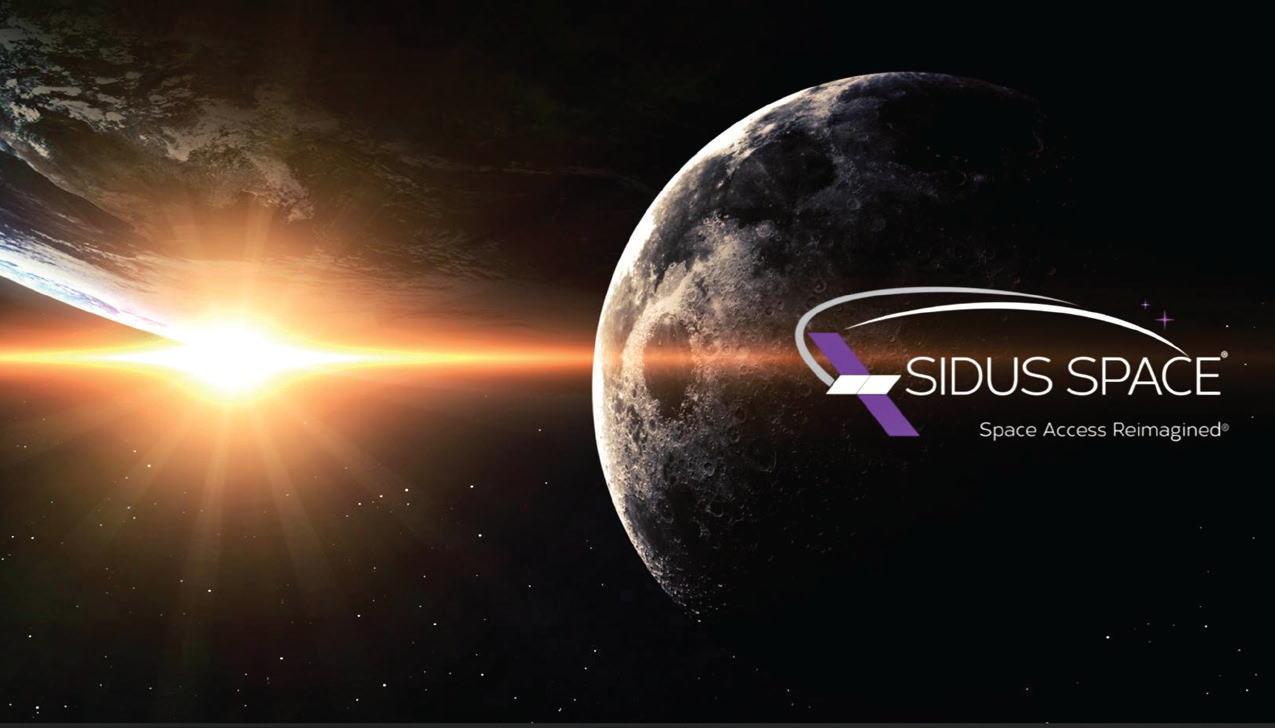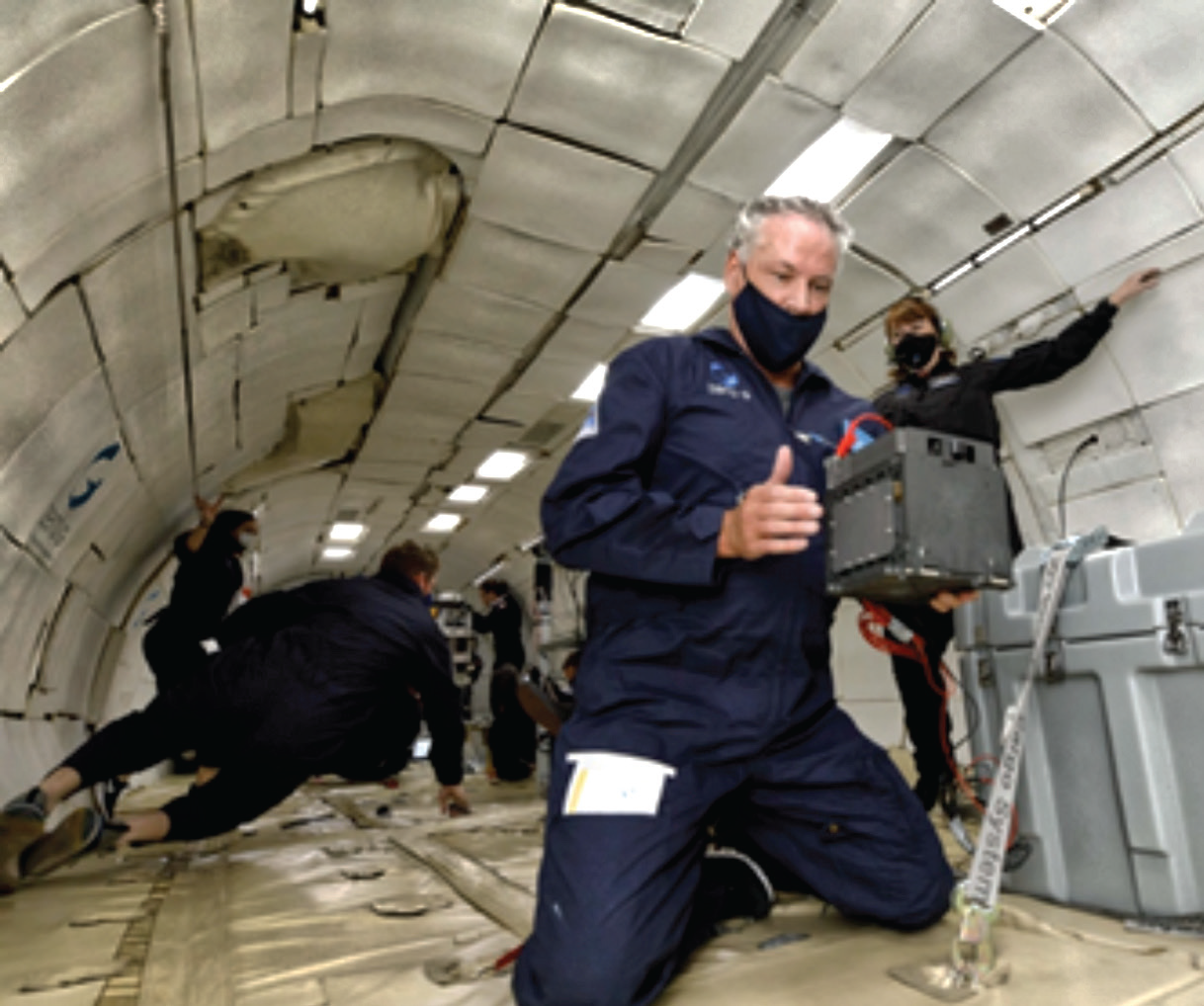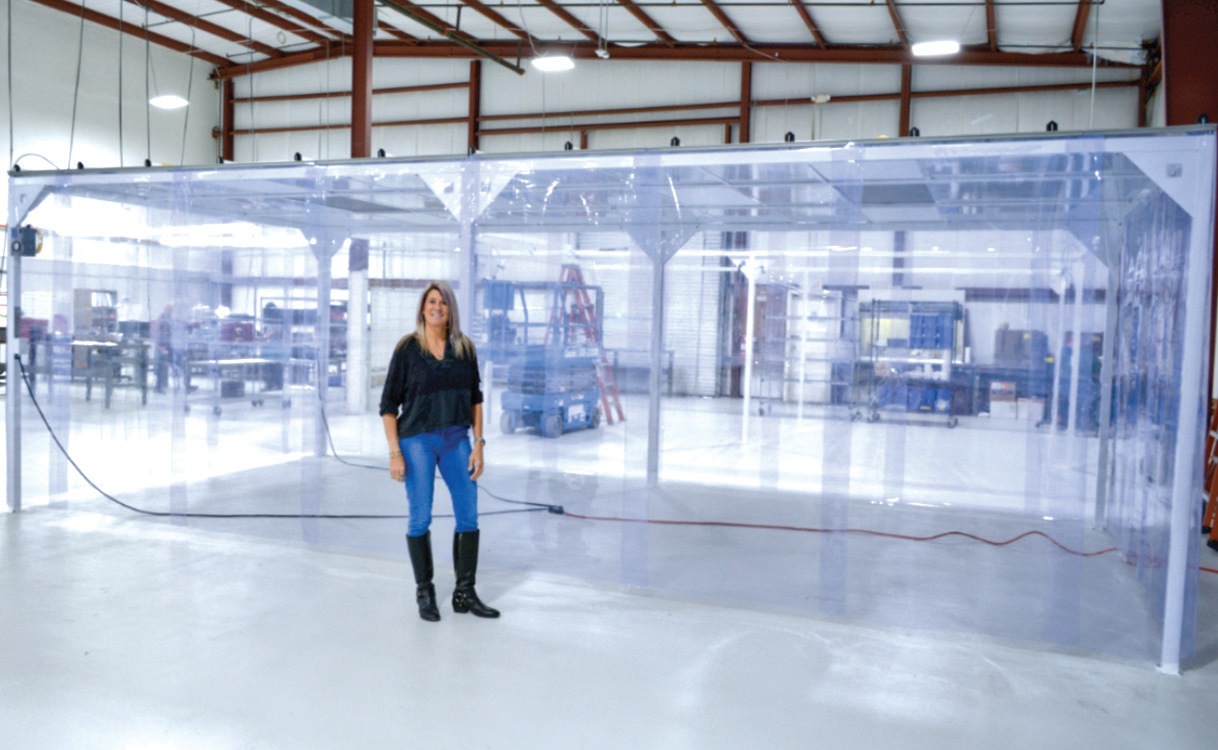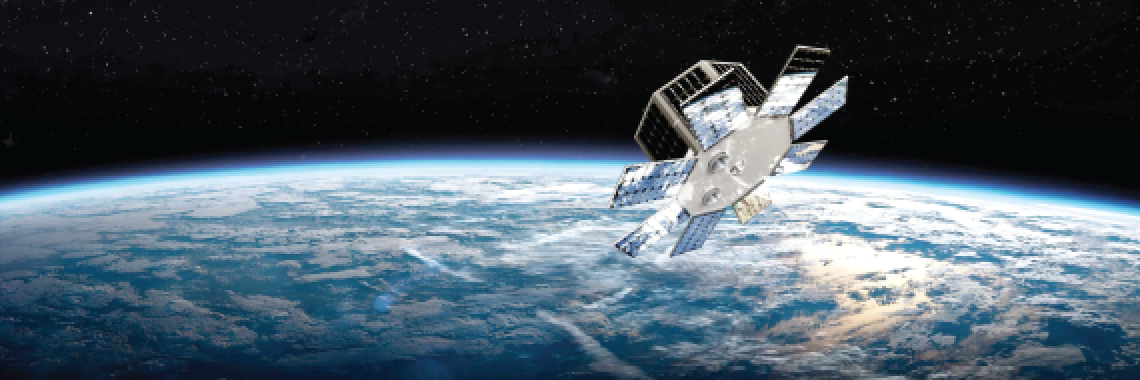Sidus Space, Inc. (NASDAQ:SIDU), a Space-as-a-Service satellite company focused on commercial satellite design, manufacture, launch, and data collection, announced their milestones and their highlights of an active and eventful 2021. Sidus Space started the year with the successful return of their External Flight Test Platform (ETFP). Designed to mount externally to the International Space Station (ISS), ETFP enables the necessary microgravity testing to raise Technology Readiness Levels (TRL) at a low cost and a reduced time frame.

After nine months in open space orbit, the EFTP was retrieved successfully into the International Space Station (ISS) and the EFTP and payloads were returned to Earth on an upgraded version of SpaceX’s Dragon cargo freighter, which was the first successful undocking and splashdown of the Dragon 2 spacecraft in the Gulf of Mexico, west of Tampa, Florida.
A New Company Name

Formally known as Craig Technologies Aerospace Solutions (CTAS), the company changed its name to Sidus Space, representing its full-service Space-as-a-Service offerings, providing clients with rapidly scalable, low- cost satellite services, space-based solutions, and testing alternatives.
“Our new name, Sidus Space, is designed to emphasize our hard work and experience, and the opportunity that we have in the new and transformative space sector. Sidus means ‘resembling a star’ and like a star, our reflection is of our past and our future. The goals of Sidus Space are ambitious and have significant implications for the global satellite manufacturing and deployment services and product markets. As a company, we believe in the disruptive characteristics of our space-as-a-service offerings and the growth opportunities it presents for customers, partners, and our employees,” said Carol Craig, CEO. She added, “Our name change simply reflects our broadened focus and supports our belief that space should be for everyone.”
A Strategic Hire
It was a year of growth for the Sidus Space employee team and executive leadership. Sidus announced the key appointment of Jamie Adams, formerly of Lockheed Martin, NASA and Boeing, as the new Sidus Space Chief Technology Officer.
For Lockheed Martin, Mr. Adams focused on strategic research and development in Lockheed Martin’s Autonomous Systems Group and supported their business areas and mission and fire control (MFC) programs developing autonomous systems technology in multiple domains (air, land, sea, and space). He joined Lockheed Martin after a distinguished career at NASA and Boeing. In his final assignment with NASA, Mr. Adams’ served as the Associate Division Chief of NASA Johnson Space Center (JSC) Software, Robotics, and Simulation, Engineering Division.
In Support Of Commercial + Government Customers
New Contract Highlights
Sidus Space secured funding for the NASA Human Exploration and Operations Mission Directorate (HEOMD) AES Project Polaris Awards for Autonomous Satellite Technology for Real-Time Applications (ASTRA). Project Polaris is a new HEOMD initiative to help meet the difficult challenges of sending humans to the Moon and Mars. Sidus Space brings years of space hardware and software development expertise to support future NASA missions, including Artemis.
 Jamie Adams, Sidus Space CTO, participates in a Zero-G flight to test Dhruva Space’s cubesat deployer.
Jamie Adams, Sidus Space CTO, participates in a Zero-G flight to test Dhruva Space’s cubesat deployer.
In an initial task order, valued at more than $5 million and supporting NASA’s Mobile Launcher 2 (ML2) contract, Sidus Space will be responsible for fabricating custom cables and populating unique electronics cabinets that will support the launch control subsystem and ground special power subsystems. The ML2 will serve as the launch platform for both crewed Orion and future uncrewed payload configurations.
Sidus Space also signed a follow-on two-year Product Pricing Agreement with a large Marine Instrumentation customer. Sidus Space will maintain a minimum/maximum inventory on specified products for this customer with the goal of fulfilling orders within a two-week timeframe.
Manufacturing Milestones
Sidus Space delivered their patented EMI Filter Box solution to reduce noise on Department of State Helicopter Instrumentation Panels under contract with a large private aviation services company.
The manufacturing of Reef Test Cutters for the Orion Crew Module Parachute System was completed by Sidus this year. This is a new design for testing the deployment of the two Drogue and three Main Parachutes for the Reef Lines separation before full deployment of the Drogue and Main Parachutes.
Sidus Space continued supporting and manufacturing hardware for a large Government Space and Communication Systems customer for the 6th consecutive year, maintaining the growth of the contract over this period of time.
Proprietary Patents
Sidus Space patents issued in 2021 include “High-Load Vacuum Chamber Motion Feedthrough Systems and Methods”, “A Method for Establishing a Wastewater Bioreactor Environment” and “Vertical Takeoff and Landing Pad Interlocking Pavers to Construct Same.”
A Notice of Allowance was received for “Print Head for Regolith- Polymer Mixture and Associated Feedstock.” Additionally, one patent application was filed and four additional patent applications are currently being prepared for filing.
Sidus Space Makes History
 Carol Craig, CEO of Sidus Space, outside of the dedicated cleanroom that will be used for material testing, processing, assembly, manufacturing and packaging of satellites and related satellite components to support the LizzieSat™ constellation.
Carol Craig, CEO of Sidus Space, outside of the dedicated cleanroom that will be used for material testing, processing, assembly, manufacturing and packaging of satellites and related satellite components to support the LizzieSat™ constellation.
On December 14th, 2021, Sidus Space went public under the Nasdaq symbol, SIDU, which resulted in $15 million of gross proceeds. The net proceeds are planned to be used for sales and marketing, operational costs, product development, manufacturing expansion, and working capital.
Notably, with the Sidus Space IPO, CEO Carol Craig has the distinction of being the first woman owner-founder of a space-based business to go public, paving the way for future aerospace leaders to “reach for the stars”.
Joining Forces With Kongsberg Satellite
Kongsberg Satellite (KSAT ) was selected as the sole provider of ground station services for Sidus’ LizzieSat™ satellite constellation. The Sidus constellation, slated to launch the first of a planned fleet of 100 satellites in late 2022, will consist of smallsats capable of hosting a variety of custom payloads for any customer mission and collecting space-based data for multiple industries.
“Thanks to our integration with KSAT, a well-established and reliable ground station services provider, high-speed data transmission will dramatically reduce the delivery time of geolocation data to our customers by a factor of three,,,” said CEO Carol Craig.
Enhancements To Support Rapid Growth + Expansion
In December of 2021, Sidus announced the ramping up of work on recently awarded contracts that included one of America’s largest, private companies. Facility enhancements include improved network connectivity with fiber optic internet, an industrial grade epoxy shop floor, new LED light fixtures throughout the facility, additional workstations and office spaces for the growing employee team and a state-of-the-art cleanroom.

Artistic rendition of Sidus Space’s LizzieSat™ constellation smallsat on-orbit.
The Sidus Space ISO 8 cleanroom, with more than 800 square feet of continuous space, was designed with high-end, precision engineering. The self-contained space will allow cleanroom processing of as many as six LizzieSat™ satellites simultaneously as they progress through the integration, assembly and test phases of development.
The HEPA Fan Filter Units (FFUs) to be installed in the cleanroom will provide up to 808 CFM (at high speed) and will remove 99.99% of particles >/= 0.3 microns in diameter. The modular system allows for expansion and reconfiguration as needed to accommodate custom applications.
Capping Off The Year
The purpose of the Zero-G flight demonstration Dhruva Space was to simulate a microgravity environment to test the spring-loaded mechanisms and electronics that unlatch the door on the Dhruva Space’s cubesat deployer. Zero-G uses a specially modified Boeing 727-200 that flies in parabolic arcs to create a weightless environment for clients seeking to achieve technological advances.
Sidus Space will integrate Dhruva’s cubesat deployer with the firm’s own Phoenix Deployer which is in development and will be launched using Sidus Space’s SSIKLOPS from the International Space Station National Lab. The Phoenix Deployer accommodates a customized configuration of 3, 6 or 12 cubesat deployers, depending on mission need. This combined capability will allow the Sidus Space / Dhruva Space partnership to offer full-service cubesat launch options to customers.
Last year set the stage and foundation for an equally active 2022 for Sidus Space. Serving government and commercial customers from small start- ups to large government contractors and governmental entities, Sidus Space will continue to bring space down to Earth, with the vision of making space accessible for everyone.
sidusspace.com


